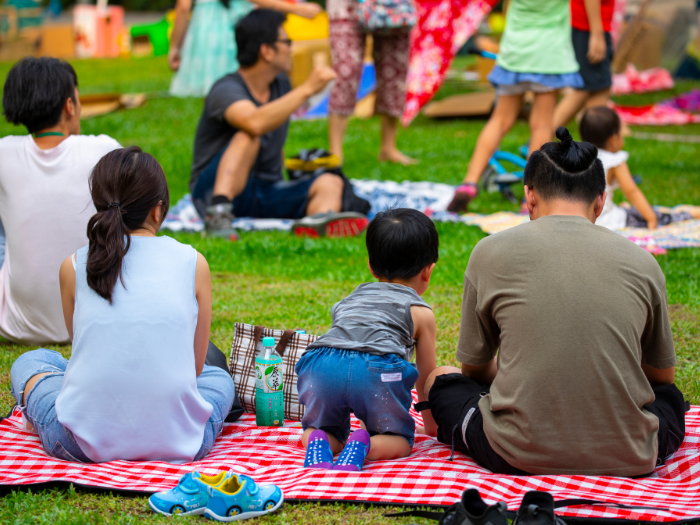
Community events are an essential part of building and strengthening communities. They provide an opportunity for people to come together, share common interests, and celebrate their culture and traditions. Community events come in many shapes and sizes, from small neighborhood gatherings to large-scale festivals. Regardless of their size or scope, community events are a powerful tool for building connections and fostering a sense of belonging.
Types of Community Events
Community events come in a variety of forms, each with its own unique purpose and audience. Here are some of the most common types of community events:
- Festivals: Festivals are often the largest and most well-known type of community event. They celebrate everything from food and music to culture and religion.
- Fairs: Fairs are similar to festivals but are often more focused on agriculture and livestock.
- Parades: Parades are a great way to celebrate holidays, cultural events, and other special occasions.
- Neighborhood Block Parties: These events are often organized by residents of a specific neighborhood to bring people together and strengthen their sense of community.
- Sports Events: Sports events are a great way to bring people together around a common interest and promote healthy lifestyles.
- Fundraisers: Fundraisers are events that are organized to raise money for a specific cause or charity.
Benefits of Community Events
Community events offer numerous benefits to both individuals and communities as a whole. Here are some of the key benefits of community events:
- Promote Community Cohesion: Community events provide an opportunity for people to come together and build relationships with their neighbors. They promote a sense of community and belonging.
- Boost Local Economies: Large-scale events like festivals and fairs can bring a significant boost to local economies by attracting visitors and generating revenue.
- Celebrate Culture and Traditions: Community events celebrate the diversity and culture of a community. They provide an opportunity for people to learn about and appreciate the traditions of others.
- Promote Volunteerism: Many community events rely on volunteers to make them a success. These events provide an opportunity for people to get involved in their community and make a positive impact.
- Improve Mental Health: Community events provide an opportunity for people to socialize and connect with others, which can improve mental health and reduce feelings of loneliness.
Ideas for Community Events
If you’re looking to organize a community event, the possibilities are endless. Here are some ideas to get you started:
- Farmers Market: Organize a weekly farmers market to support local farmers and provide fresh produce to the community.
- Art Walk: Organize an art walk through your community to showcase local artists and promote the arts.
- Concerts in the Park: Host a series of free concerts in a local park or outdoor space.
- Neighborhood Clean-Up: Organize a neighborhood clean-up event to beautify the community and promote civic engagement.
- Holiday Celebrations: Organize a community-wide celebration for holidays like Halloween, Christmas, or Easter.
- Cultural Festivals: Organize a festival to celebrate the culture and traditions of a specific community or ethnic group.
Tips for Organizing a Successful Community Event
Organizing a community event can be a big undertaking, but with some careful planning and preparation, it can be a huge success. Here are some tips for organizing a successful community event:
- Start Early: Begin planning your event as early as possible to ensure that everything is in place by the time the event takes place.
- Set a Realistic Budget: Create a budget for your event and stick to it. Be sure to include all of the expenses associated.
- Partner with Local Businesses: Local businesses can also be a great resource for community events. They may be willing to sponsor the event, provide donations, or even host the event at their location. In exchange, you can offer them exposure to the community and potential customers. Make sure to establish clear expectations and agreements with any partnering businesses.
- Get Creative with Promotion: Don’t be afraid to think outside the box when it comes to promoting your community event. Social media is a great tool, but you can also consider flyers, posters, word of mouth, and even partnering with local media outlets. The key is to reach as many people in your community as possible.
- Encourage Feedback: After the event is over, make sure to solicit feedback from attendees, volunteers, and anyone else involved. This will help you identify areas for improvement and make your next community event even better.
- Consider a Cause: Community events can also be a great way to raise awareness and funds for a particular cause or issue. Whether it’s a charity, a social justice movement, or an environmental cause, aligning your event with a cause can attract more attendees and give your event a greater sense of purpose.
- Have Fun: Finally, don’t forget that community events are meant to be enjoyable for everyone involved. Make sure to plan activities and entertainment that appeal to a variety of ages and interests, and don’t forget to enjoy the event yourself!
